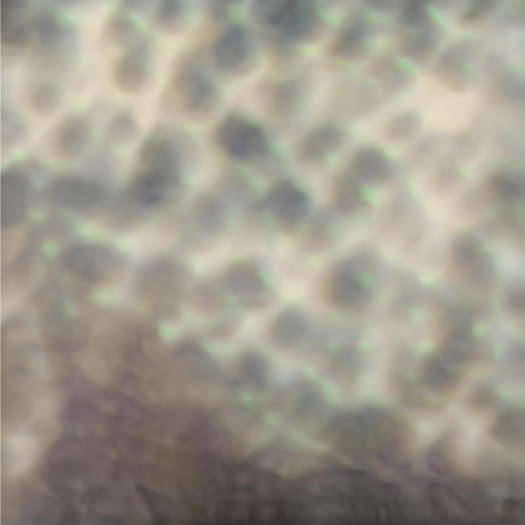 MET STARS: From 2002 until 2021 the late Maria Nockin reported from Arizona, mostly on live opera productions.
MET STARS: From 2002 until 2021 the late Maria Nockin reported from Arizona, mostly on live opera productions.

The Piano Turned Inside-Out
JOHN DANTE PREVEDINI considers Carlos Cipa's new release a triumph
'... a remarkably fresh and distinctive pianistic listening experience ...'
Ourselves, as we are is the new release from Warner Classics of a collection of nine improvised piano pieces by Berlin-based pianist Carlos Cipa. The roughly forty-minute album is available in CD, vinyl and digital download formats and has liner notes available on the label's website. The pieces, whose titles evoke different facets of contemplative introspection, showcase a novel approach to piano composition and performance made possible only in the recording studio: the use of extremely close-range microphony to capture the instrument being played 'as quietly as possible', to quote the liner notes. This creates a piano sound world in which the instrument's percussive elements are suppressed and its lyrical qualities enhanced. Furthermore, at this level of sonic magnification, the innate sounds of the piano's action become an ever-present feature of the music. Yet, far from necessarily being a distraction, these sounds arguably add to the aesthetic an element which some listeners might enjoy as a kind of 'piano ASMR' experience.
While the tempi, meters, harmonic palettes and titular associations of the nine pieces are varied over the course of the album, they nonetheless remain united in several aspects of compositional structure. All of the pieces are single-movement works in a diatonic harmonic idiom, focusing heavily on ostinati, spanning about four to six minutes in length and stressing singularities of both tempo and emotional profile. Seen through the lens of contemporary classical practice, such a compositional palette might likely be described as broadly post-minimalist, overlapping somewhat with models commonly associated with composers like Arvo Pärt or Max Richter. Yet Carlos Cipa's work also lends itself well to multi-genre crossover and might additionally find broader appeal among audiences of the so-called 'ambient music' market. In other words, it rewards both casual and deeper listening. In any case, I find it safe to say that the album's sonic design provides a remarkably fresh and distinctive pianistic listening experience that a range of listeners will likely enjoy.
The first piece, Took, presents us with an understated - yet emotionally powerful - Aeolian modal ostinato in a medium-slow compound quadruple meter, punctuated by upper-register melodic gestures.
Listen — Carlos Cipa: Took
(5054197274374 track 1, 0:18-0:48) ℗ 2023 Parlophone Records Ltd :
This is followed by Between two strangers, a minor-keyed piece in medium-tempo compound triple meter with an apparent secondary beat division of 3-2-2-2. The third track, Walk so silently, is a medium-fast piece in duple meter with an Aeolian harmony showcasing open fourths and fifths and making particular use of the piano's lower registers. This is followed by Unpredictable patterns, which has a very dissonant beginning followed by harmonies based on consonant intervals and a wide registral range. Meanwhile, the pulse tempo resembles a slightly slower version of the one used in the previous track. Here, the piano's action takes on more of an apparent percussive role. In addition, the music seems even quieter than that heard in the surrounding tracks, and Unpredictable patterns thus appears true to its title within the context of the album's overall sonic world. Track five is the eponymous Ourselves, as we are, appropriately placed in the album's midpoint. This piece utilizes a moderate pulse tempo with what is effectively a duple-triple polymeter, and its melodic structure strikes me as highly poignant, emotionally complex and particularly memorable.
Listen — Carlos Cipa: Ourselves, as we are
(5054197274374 track 5, 0:00-0:30) ℗ 2023 Parlophone Records Ltd :
The sixth piece, Face the sea, is much freer and slower than the others heard so far, the gestures occurring in pulses of diatonic clusters followed by pauses. The music gradually settles into a medium-slow pulse of apparent undefined meter. The registers are lower as well, with a melody arising out of the octave just below middle C. The piece ends in a slight morendo mid-phrase. Next is City waiting. This piece centers around a major-second dyad pulse with the music settling into a common-time melody at an apparent medium tempo.
Listen — Carlos Cipa: City waiting
(5054197274374 track 7, 0:21-0:51) ℗ 2023 Parlophone Records Ltd :
The penultimate track, Maintenance, showcases a three-against-four polyrhythmic melody in sixths, a unique musical texture compared with that of the surrounding tracks on this album. The overall effect of the piece is very gentle and restorative, and it seems consciously delivered within the context suggested by the track title. The ninth and final track, Forgotten me, shows Cipa venturing back into medium tempo with darker sonorities, lower registers moving in fifths and a slight arch form with the piece ending in an apparent morendo al fine.
Cipa is quoted in the liner notes as observing that 'today, it can be more radical to make a quiet piano album than a totally complex and intricate piece of music'. Taken within the aesthetic philosophical framework of much contemporary art music, I would agree with his self-assessment. Indeed, the liner notes describe the release as a 'deeply vulnerable collection', apparently reflecting upon the creative and cultural risk involved in producing a project so seemingly at odds with the understandably thorny ethos of many progressive art forms in our time. Yet I consider this release a triumph for the very medium of the recorded piano itself, one which likewise opens doorways of possibility for artists of the aforementioned 'complex and intricate' contemporary music as well. In conclusion, I am grateful for Carlos Cipa's efforts to creatively reassess the fundamental norms of the piano recording process, and for his courage to be himself, as he is.
Copyright © 24 February 2023
John Dante Prevedini,
Connecticut, USA




